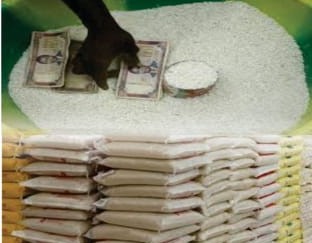In recent weeks, rice importers in Liberia have employed strategic maneuvers to create an artificial shortage of the crucial staple in order to compel the government to acquiesce to their demands for price increases. The importers have previously sought a hike in the price of a 25kg bag of rice from US$17.50 to US$20, referencing a new levy imposed by the Indian government on non-basmati rice exports. In an effort to amplify their claims of imminent shortages, the leading importer K&K alleged that APM Terminals Liberia Limited, responsible for managing shipping at the Freeport of Monrovia, was stalling rice vessels from docking ahead of other cargo ships. However, documents acquired by local media suggest that such claims may be misleading and part of a broader tactic to manipulate market conditions.
A year-on-year analysis of rice imports reveals a troubling pattern that coincides with the importers’ pricing demands. In the first five months of 2020, for instance, Liberia imported 178,905 metric tons of rice. However, when importers requested increased pricing in 2021, imports dropped significantly to 125,102 metric tons. Slight improvements in 2022 and dramatic surges in 2023—after the previous government provided US$12 million in subsidies to quell unrest before elections—contrasted sharply with patterns observed in 2024. In the first five months of this year, only 83,056 metric tons of rice entered the country, underscoring a significant decline as the new administration withheld both subsidies and requests for price increases.
K&K’s management further claimed that APM Terminals was prioritizing cargo vessels over rice vessels, leading to delays in rice deliveries and additional costs. They asserted their grievances to various governmental bodies but did not receive satisfactory resolutions. To understand this scenario fully, one must recognize the operational protocols established at the Freeport of Monrovia, which dictate that vessels are given berthing priority based on their arrival time unless specified otherwise by port authorities. The documentation reveals that other consignments had arrived earlier, placing K&K’s shipment at a disadvantage due to their later arrival.
The berthing protocol denotes a first-come, first-serve system, particularly differentiating between types of vessels. While liner vessels have priority, rice and other bulk cargo vessels are allocated dock space based on their temporal arrival, reinforcing that K&K’s late arrival was likely the root cause of their consignment delays. A modification scheme, dubbed the bulk-to-container approach, was suggested by APM Terminals to help ease logistics issues faced during rainy seasons, indicating an available alternative for rice importers like K&K.
Ultimately, the rice import strategy in Liberia appears to revolve around leveraging market manipulation tactics to secure price increases by instigating perceived shortages. The pattern of withholding imports during negotiations highlights a repeated cycle of pressure exerted by importers on the government regarding staple commodity pricing, showcasing a dynamic interplay between market forces and regulatory oversight. Looking ahead, it will be critical for the government and stakeholders in the supply chain to devise strategies to curtail such manipulation, ensuring that rice remains accessible and affordable for the Liberian population while emphasizing transparency in market operations.
In a landscape where rice is not just a commodity but a staple for many Liberians, the ramifications of such strategic import manipulation are profound. Rising prices and reported shortages can lead to increased food insecurity, particularly among vulnerable populations who depend heavily on rice as a dietary staple. Furthermore, the government’s inability to navigate this complex interaction with importers may undermine public trust and evoke societal unrest, reminiscent of the challenging circumstances leading to previous subsidy provisions. As the situation unfolds, vigilant oversight, open communication channels, and innovative solutions tailored to evolving market conditions will be indispensable in safeguarding food security while maintaining a fair trading environment for all parties involved.


